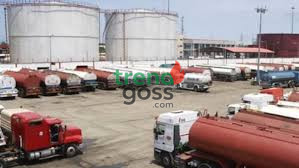The Depot and Petroleum Products Marketers Association of Nigeria (DAPPMAN) has urged the Dangote Refinery to adopt an open-door supply policy, allowing marketers fair access to petroleum products at reasonable prices.
During an appearance on Channels Television’s breakfast programme, The Morning Brief, DAPPMAN spokesperson Ikem Ohia emphasized that a partnership with the Refinery would guarantee steady fuel availability across Nigeria. He dismissed the notion that the Association was in conflict with the Dangote Refinery, stating that their goal is collaboration to eliminate fuel queues and provide Nigerians with a stable supply.
“Our key interest is to have petroleum products offered at reasonable prices consistently, in a way that there’s no stock-out and Nigerians no longer queue for fuel,” Ohia stated.
Ohia acknowledged that while the Dangote Refinery is currently the dominant supplier—a development welcomed by marketers—the core challenges remain access and pricing. “The question is: at what price does he offer us, and do we actually have access to purchase these products from him?” he asked.
To efficiently distribute petroleum products nationwide, Ohia noted that DAPPMAN members have established a robust distribution network over the past 20 years, with depots strategically located in Calabar, Port Harcourt, Warri, and Lagos. “What we are asking Dangote to do is to use these depots that are already in existence for us to meet the demands of Nigerians,” he said.
He clarified that the marketers are not seeking subsidies, stressing that the matter is purely commercial. “We are businessmen; he is a businessman. We’re not asking for subsidies. We went into negotiations and are still negotiating to see how he can bridge the gap,” Ohia explained.
Ohia further elaborated that most global refineries operate through two models: wholesale bulk lifting by vessels and ex-gantry retail sales. “Relying only on retail gantry sales cannot meet national demand,” he warned.
Despite reaching out to the Dangote Refinery for collaboration before production commenced, Ohia mentioned that a firm understanding has yet to be established. “Instead, he prefers to work with a few selected partners, which includes one or two of our members. We believe an open system, not a controlled one, will help the country,” he said.
Many DAPPMAN members operate retail networks of up to 300 stations that could distribute products nationwide, but they currently face restricted supply. “Figures don’t lie; whatever is supplied now doesn’t meet full market needs. Bulk deliveries to depots are necessary if we must serve Nigerians effectively,” he added.
The clarification from DAPPMAN follows recent controversies regarding the distribution of petroleum products across the country. The Dangote Refinery has invested billions in acquiring 4,000 CNG-powered trucks for nationwide fuel supply; however, marketers argue that the Refinery is leaning towards monopolizing the downstream sector.
The rift between DAPPMAN and Dangote escalated, with businessman Femi Otedola advising oil marketers to consider restructuring in line with evolving market dynamics. Otedola suggested that DAPPMAN consider purchasing the Port Harcourt Refinery to remain relevant in the downstream business.
During the same program, Billy Gilly-Harris, President of the Petroleum Products Retail Outlets Owners Association of Nigeria (PETROAN), argued that Dangote Refinery’s 4,000 trucks are insufficient to ensure a stable and efficient product supply throughout the country.
#DAPPMAN #DangoteRefinery #FuelSupply #Nigeria #PetroleumProducts #Partnership #OilIndustry #MarketDynamics






